In July 2022 and most recently from September 11-15, six different teams from the SCENARIOS consortium met at the Trelleborg demonstration site in southern Sweden and the Korsor demonstration site in Zelandia, Denmark, to carry out important work related to research and demonstration tasks under this project funded by the H2020 program.
About 20 people from different European countries and Israel, including scientists, technical specialists and PhD students from UPO (IT), SALENTO (IT), SENSOIL (IS), GEO (DK), ENVYTECH (SE) and BGU (IS) have initiated a series of activities that include drilling, geological analysis, installation of monitoring and sampling equipment, which will make it possible to study the mobilization of PFAS in the unsaturated zone as a function of the geological settings, to test the effectiveness of remediation measures, and to collect valuable material for the search for microbial metabolic processes involved in the degradation and/or fate of these molecules.
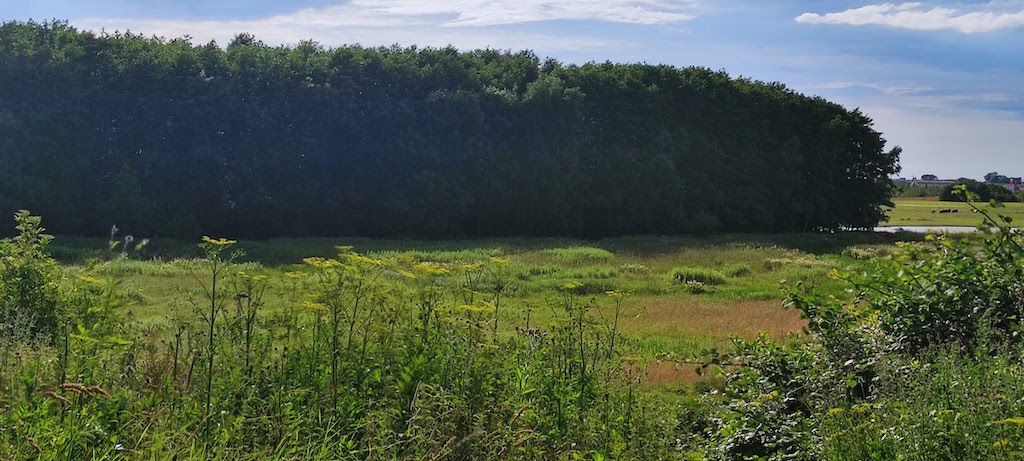
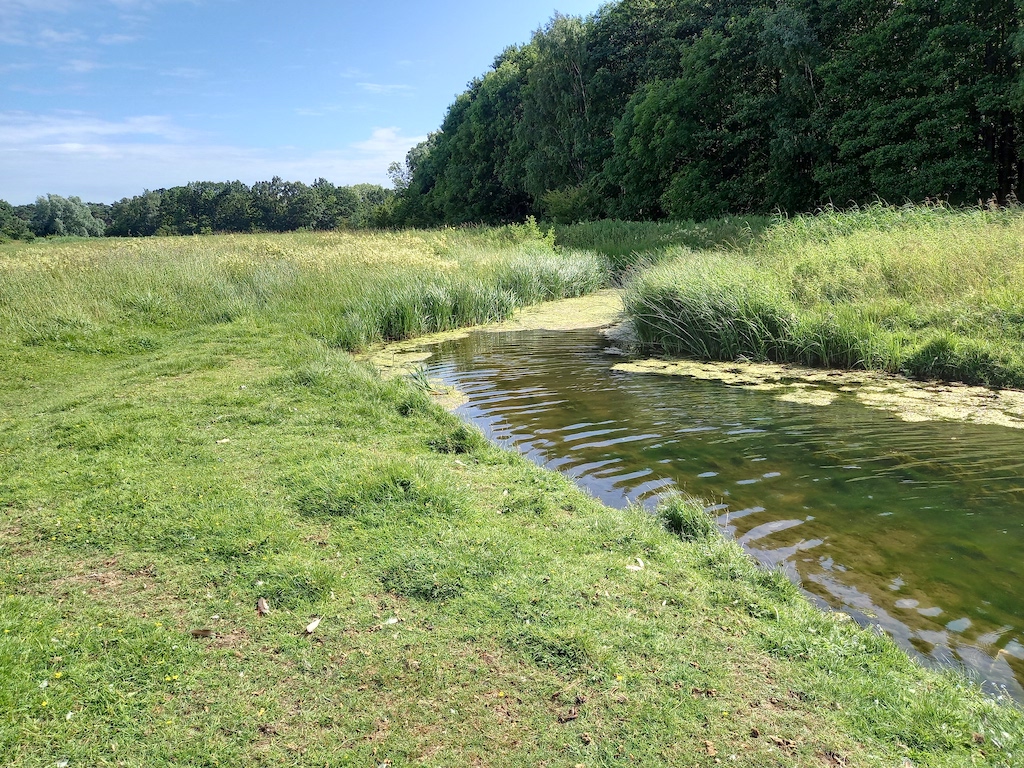
The Trelleborg (Sweden) site consists of a former fire training area where PFOS-based foam-forming films (AFFF) and other PFAS congeners have been used for dozens of years. The site is complex and equally interesting because it was constructed on top of a 50+ year old domestic and industrial landfill (wheels from a nearby factory). The landfill is unlined, allowing PFASs to freely infiltrate the subsurface aquifer and reach longer distances and/or surface waters, such as the nearby creek flowing downhill from the landfill hill.
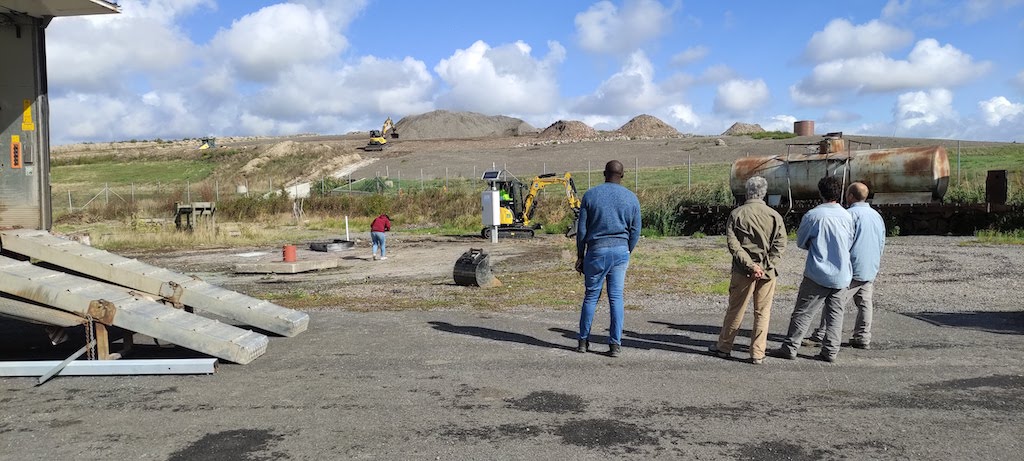
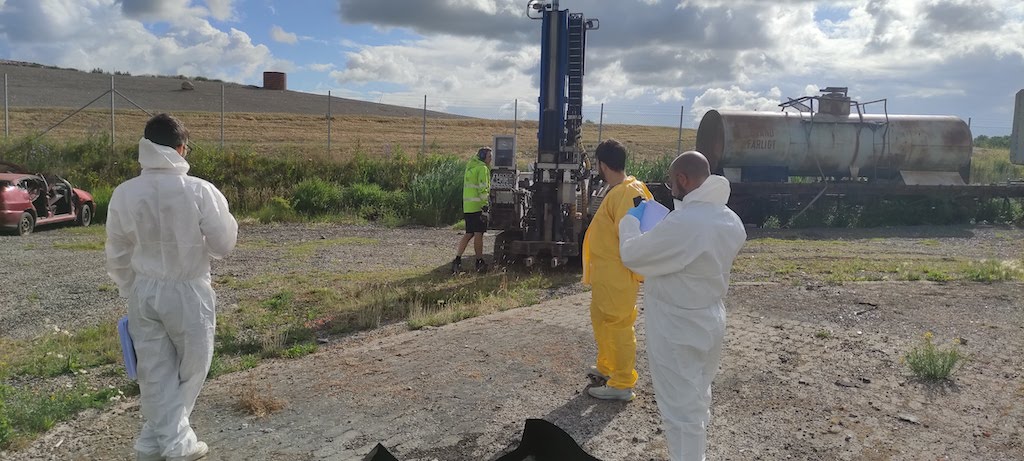
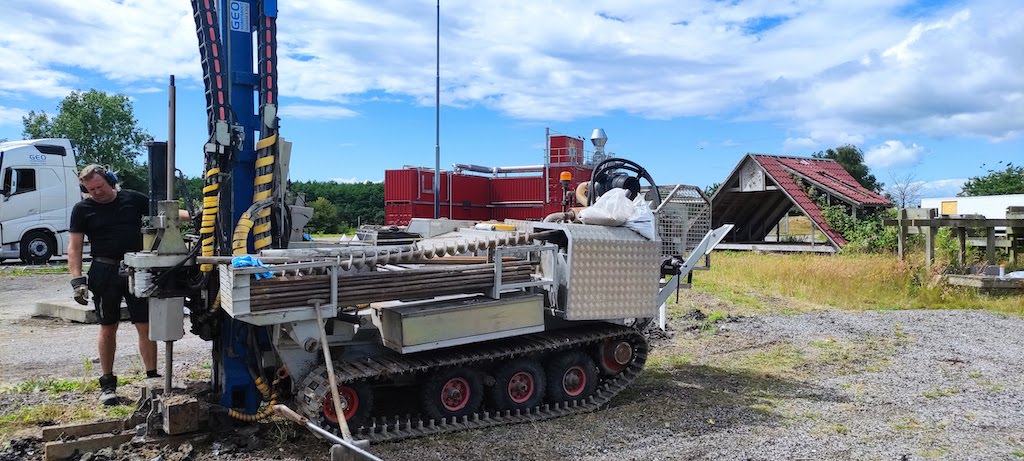
The Korsor site in Denmark is a Royal Danish Navy school that is still in operation and of considerable ecological value, as is Trelleborg. PFAS compounds were also released there as a result of former fire training activities (today their use in AFFF foams is banned), but the geological conditions are quite different from those in Sweden.
In a joint effort between the various teams, particularly Envytech and GEO, the Israeli Sensoil-BGU team, under the constant supervision of the project coordinator, completed the installation of the Vadose zone Monitoring System at the two sites with great success. The VMS is a real-time sensor system that collects hydrological information in the unsaturated zone via the cloud web and allows leachate sampling at various depths. SCENARIOS partner Sensoil is the only manufacturer of this system in the world, and this is the first installation to study the mobilization of PFAS between the surface, unsaturated zone and subsurface aquifer!
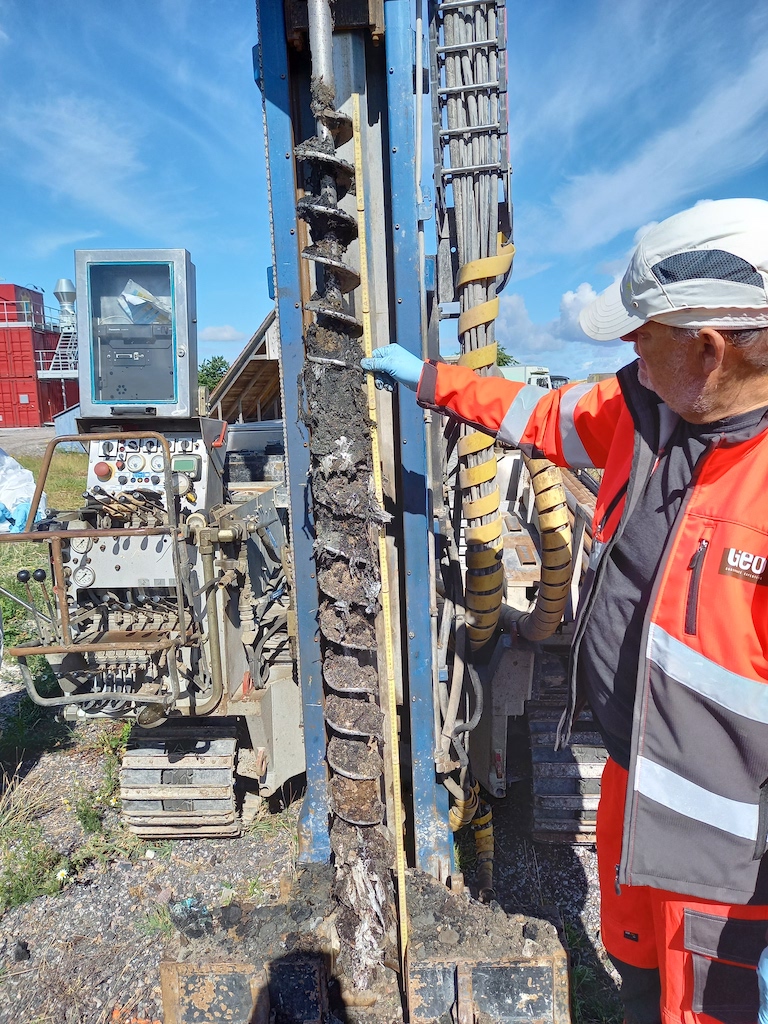
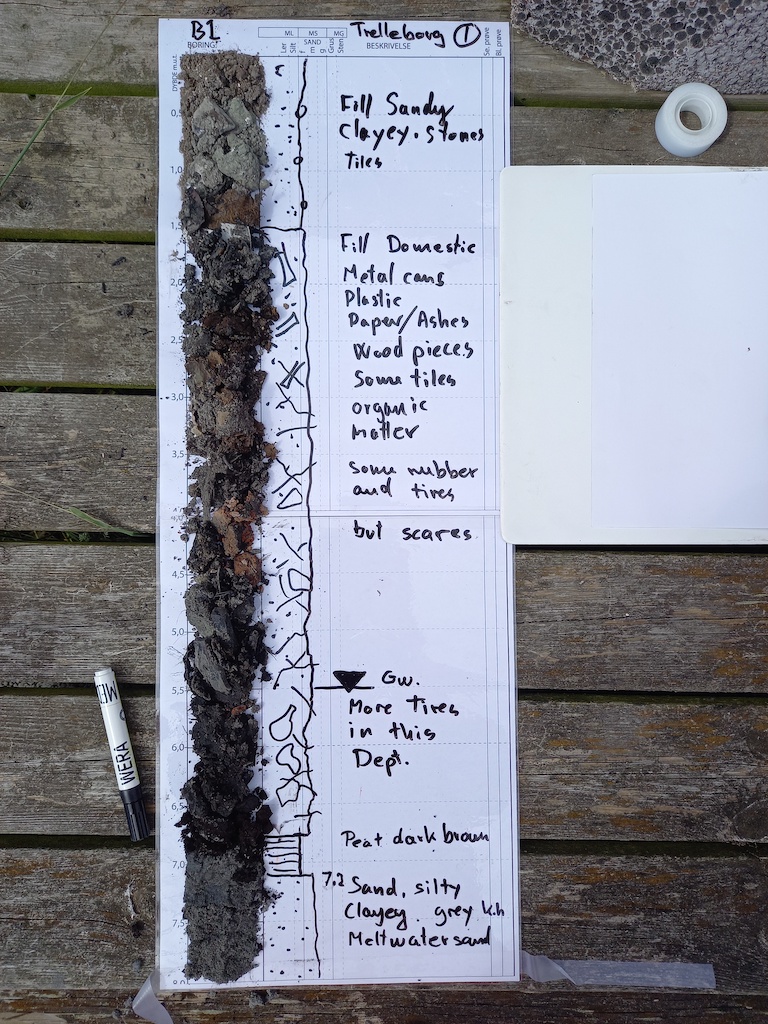
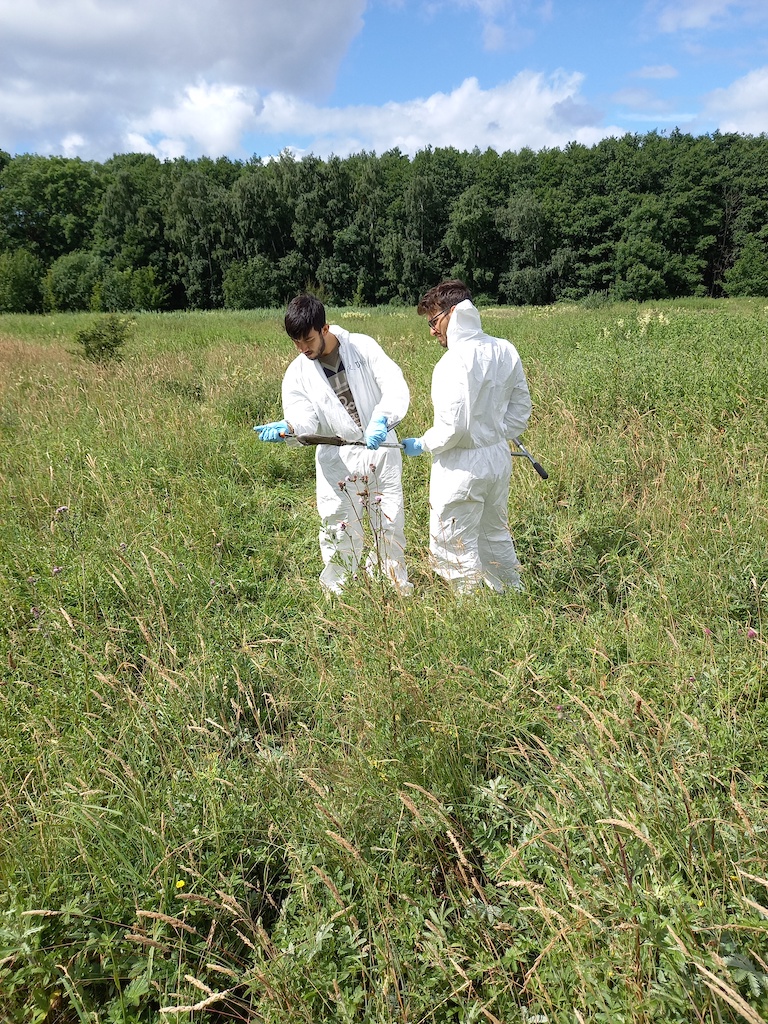
Similarly, the research team from UPO and SALENTO, with the coordinator from SCENARIOS at the helm, has been working to collect soil and water samples to isolate PFAS-resistant strains and perform sophisticated metagenomic, metatracriptomic, and metaproteomic analyzes to search for microbial metabolites that can degrade PFAS. After encouraging results from the first sampling in July, which isolated two bacterial strains that survived well at high PFAS concentrations, the researchers returned to conduct new sampling. This sampling encountered difficulties in stabilizing the microbial material, so soil and water samples were collected within 1 minute of the core emerging from the subsurface. Then the samples were frozen in dry ice at a temperature of -69°C and quickly transferred to ultra-freezers at -80°C.
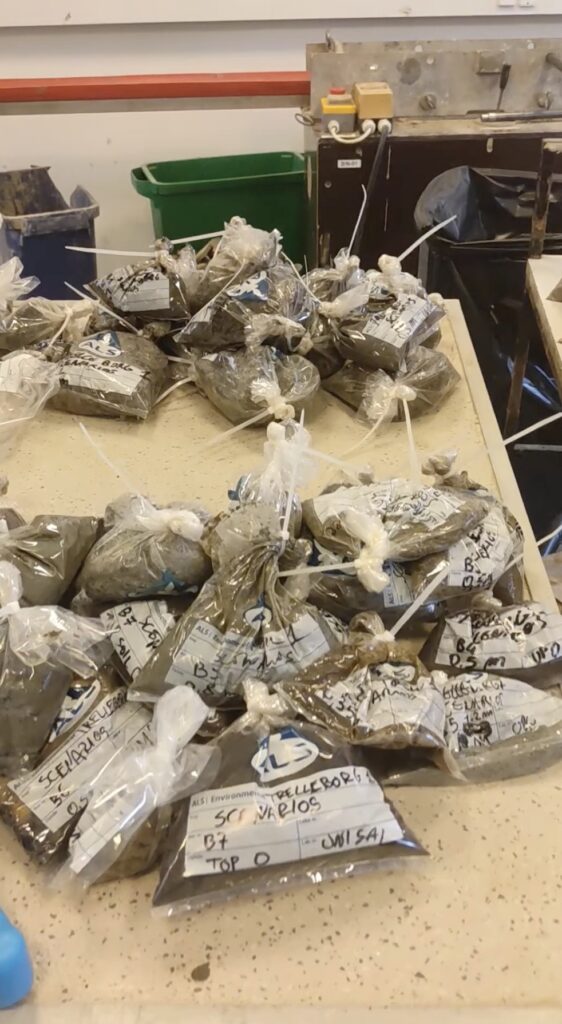
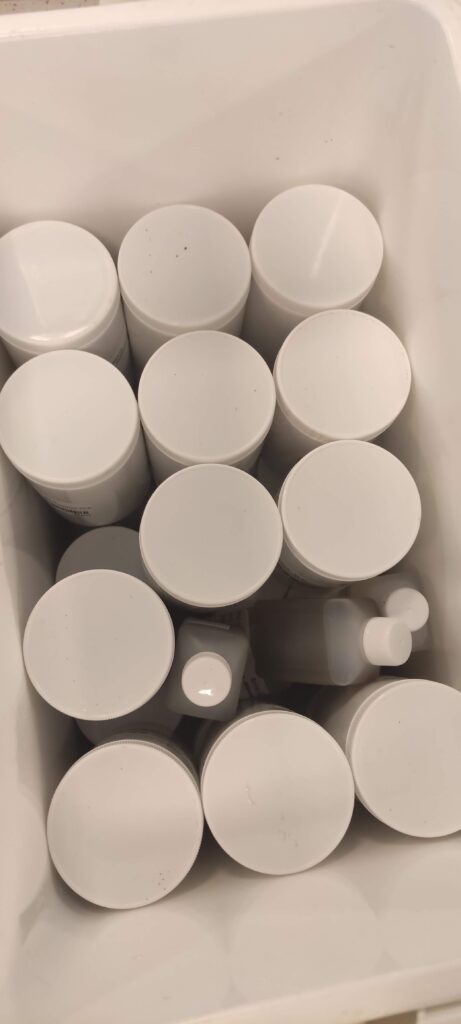
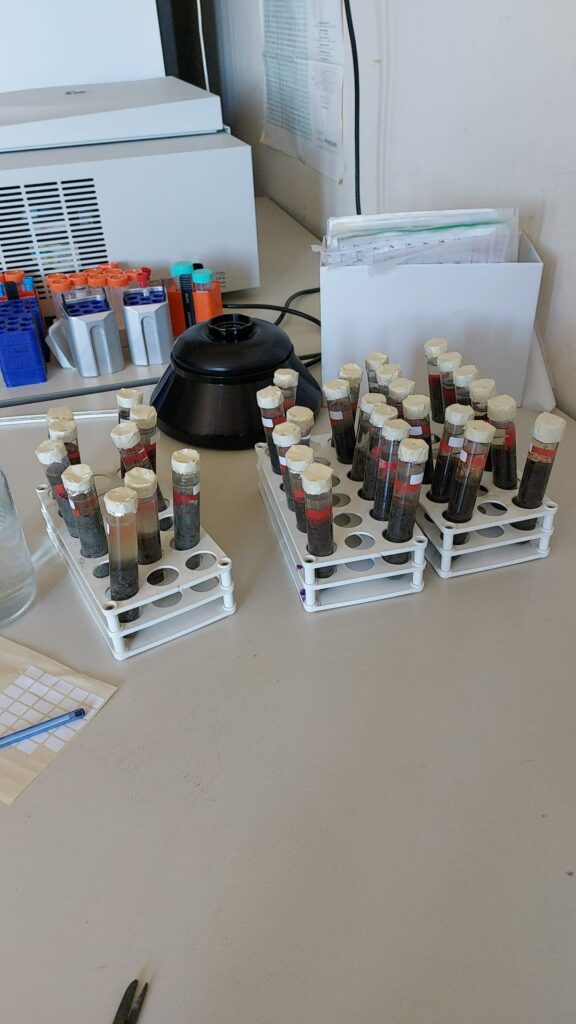
The GEO research team provided excellent support during the activities. Lead scientist Knut Erik Klint, a world-renowned expert on the glacial geology of the Scandinavian terrain, helped shed light on the orogeny of the sites and their complex formation process, making a crucial contribution to the scientific understanding of the problem as well as excavation and sampling.
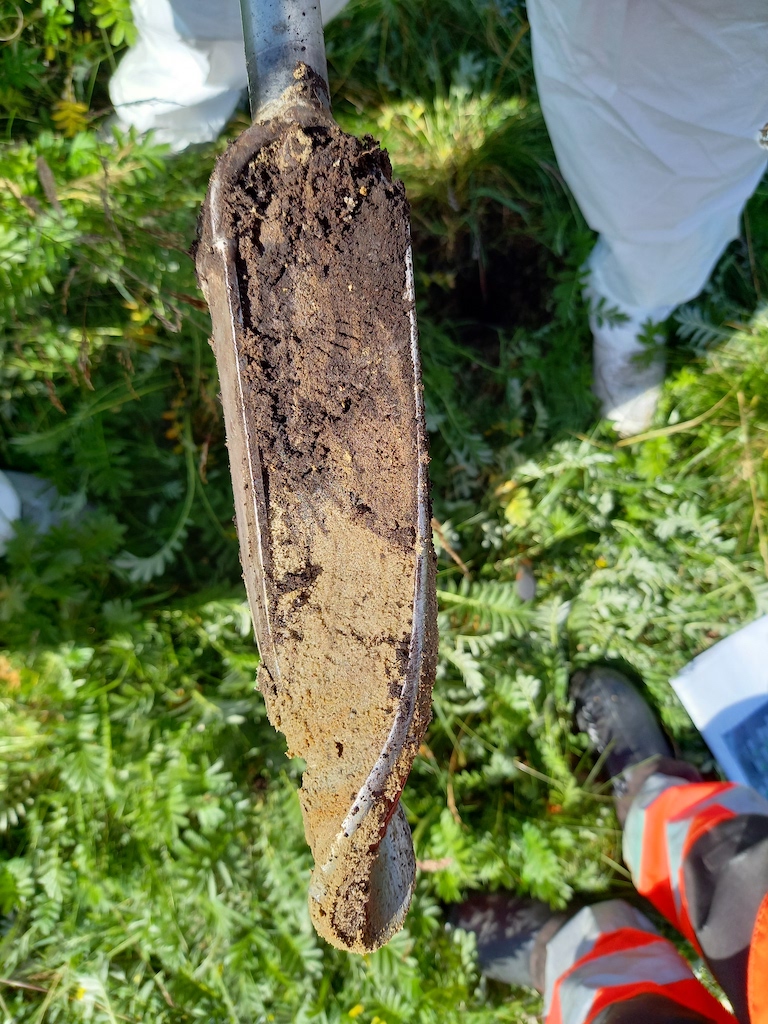
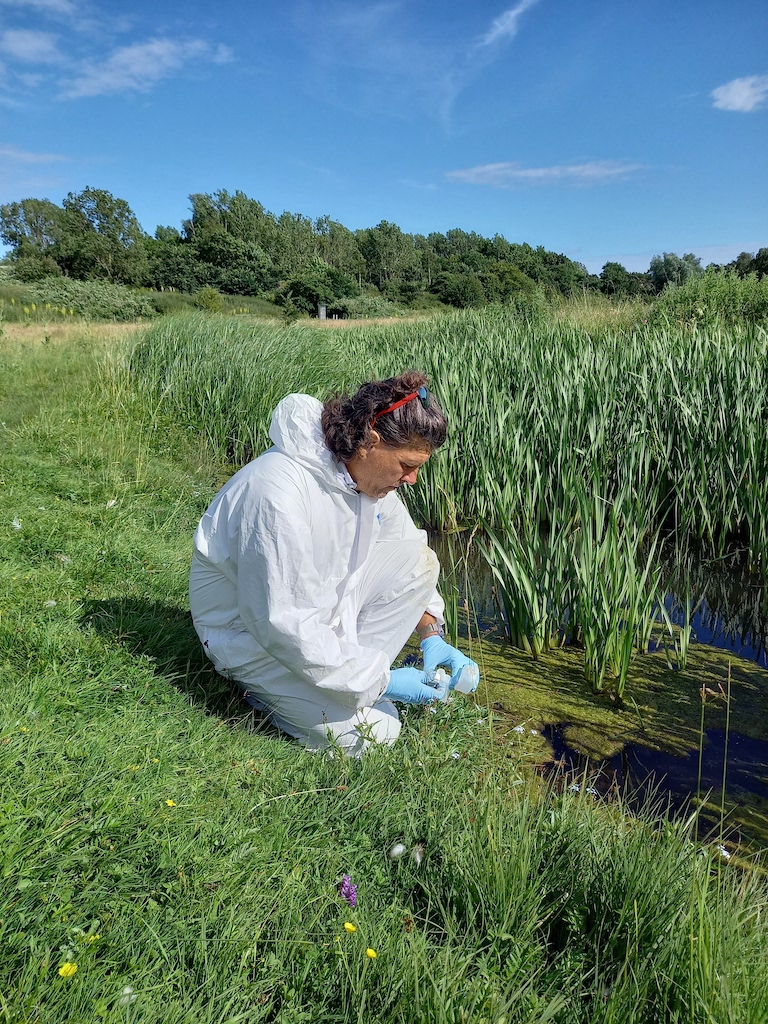
This is only the first update of project activities. Stay tuned for future updates!